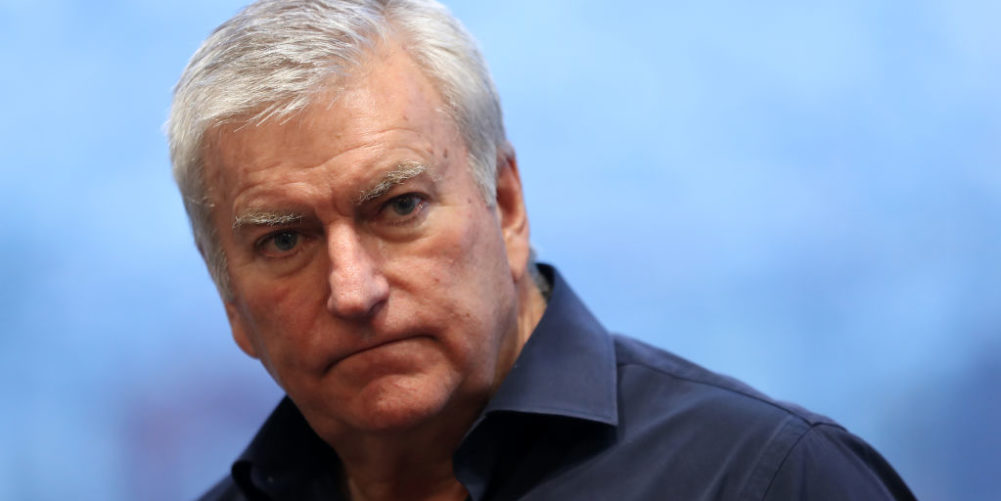When I sat on the RFU council, no matter what was happening in the rugby world the CEO's review of the year at the annual meeting was always an upbeat statement about how well the game and the RFU had coped with whatever had been thrown at it.
Even though there were some disasters and financial concerns back then, the end of year review always managed to shine a rosy light on things which made most, if not all, the game feel that however bad things were, the council and professional staff at Twickenham were on top of their game and to some degree in control.
Reading through Bill Sweeney's latest offering, I must admit I am more than a little surprised at the conclusion that has been drawn at this stage, regarding the pandemic shock waves that are still resonating throughout the game.
With most grassroots rugby effectively not playing rugby as we know it, plus quite a large number of players yet to return by hopefully next season, we really don't know what the impact on grassroots clubs will be at this stage. Also, how many of them will be able to survive?
There can be no doubt that the approval of the covid recovery plan, which will in effect ring-fence the Premiership for the next three seasons, will have a negative impact on the League system below and we may well see a number of investors pulling out.
This in turn could see a collapse of the current League system before the forthcoming structural review has the time and a chance of sorting out the mess that will be created.
Of course, only agreeing no relegation for the Championship and Premiership while allowing for promotion to still take place has seen the Championship maintain its full compliment of clubs, while Saracens returning to the Premiership increased that to 13.
Bill's statement also alluded to the massive increase of money invested in the grassroots game with a staggering £161m out of a total rugby spend of £427m in the last four-year cycle ending in 2020.
The recovery plan seems to have been agreed mainly by all who stand to benefit from this – Premiership Rugby and its clubs, RPA and the RFU board, all of whom have a conflict of interest as part of the ‘protected' group and not the grassroots game, who over the years through reduced funding levels have to pay for it .
Premiership Rugby and its clubs are the ones who were seeking to protect themselves from the financial pains of relegation, while RPA represents the players who are employed by those clubs and could lose their jobs should their club be relegated.
The RFU Board is heavily weighted towards the business of rugby, not the sport, so looks as if it has little knowledge of the grassroots game, dealing mainly with the professionals.
Although there was also consultation with the Championship it is probable that they were promised some extra cash if they agree to a temporary pause on relegation. I also noted that it didn't say a pause on promotion, which will probably stay open until Ealing cough up enough money to make the Premiership a 14-club league.
Although this sounds a lot when divided by the 1,976 clubs that make up the game outside the two professional leagues, it amounts to an average of just under £20,370 per club per year.
Assuming the other £266m was spent on the professional game that would give them an average of just over £2.78m per club per year. However, we know that the vast majority just goes to the Premiership and not the Championship.
The government bailout of £135m has seen around £30m go to grassroots with 512 clubs already receiving an average of £35,547 each (£18.2m in total) to help with their survival.
Even the debenture donation scheme, which has raised around £35m will see around just £1.5m go to grassroots clubs to aid in helping the survival of our important community club game.
With all the headline figures in millions it would seem that funding is generally good for the grassroots, but when you consider this contitutes the majority of our game, the sum for each club is pretty low.
As much as I believe in the integrity of the RFU and particularly Bill Sweeney, these figures show that over the years the RFU have favoured the professional game over its core members, the grassroots although I know the obvious reason is that a strong England team is of vital importance for the financial survival of the game.
This is particularly true for the professional game, but I can't help thinking that for the recovery plan to be a success, more effort will have to be made to return an equitable 50/50 funding split between the professional game and the rest, especially as the game seeks to recover and grow after the pandemic.
In order to make sure that future PGAs no longer put the RFU in the position it has faced in the last eight years of having to take from the grassroots to fund its contract with the Premiership, the grassroots should also have a contracted agreement on minimum levels of funding.
Only then can the whole game have the security of knowing they have a safe and funded future.



























